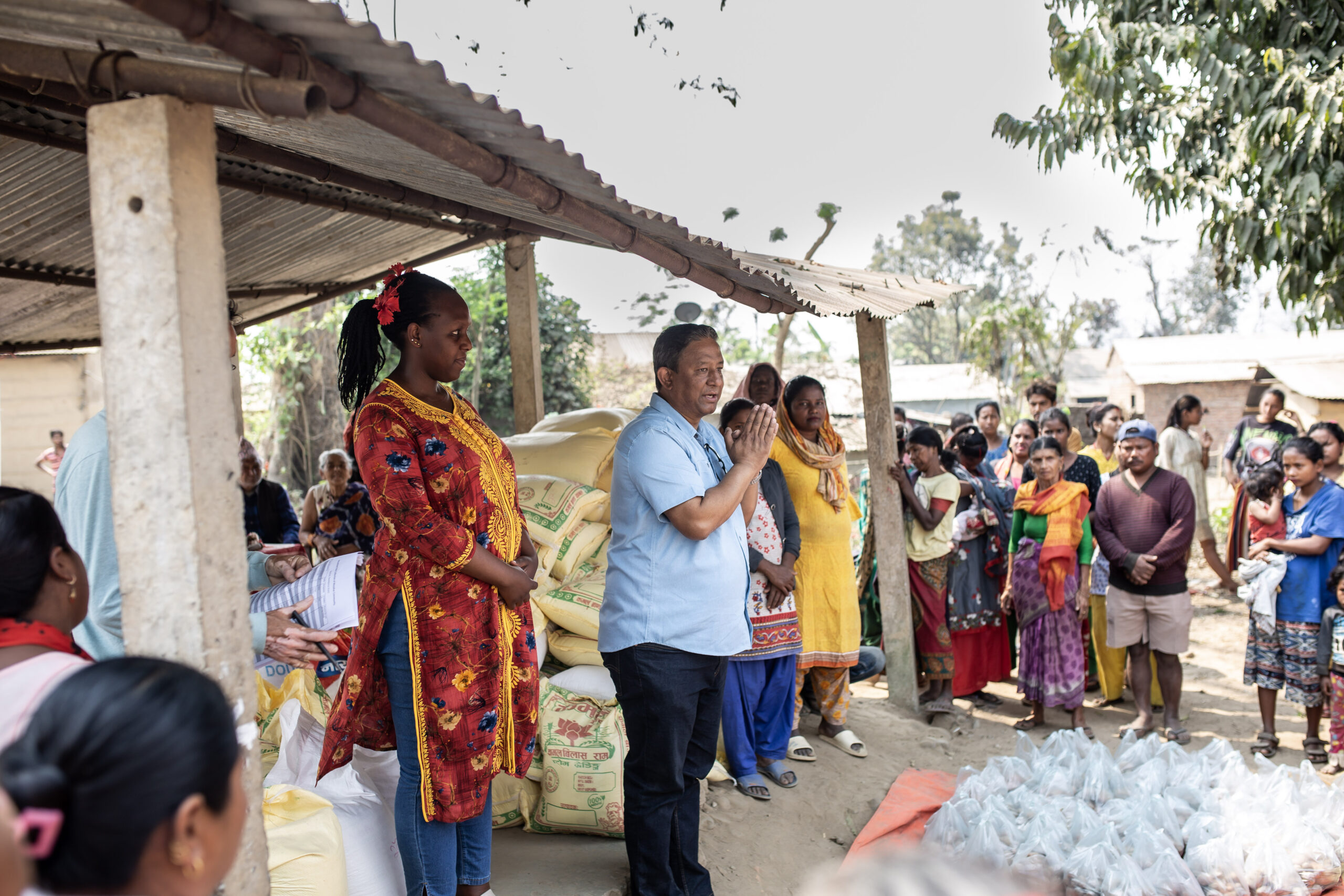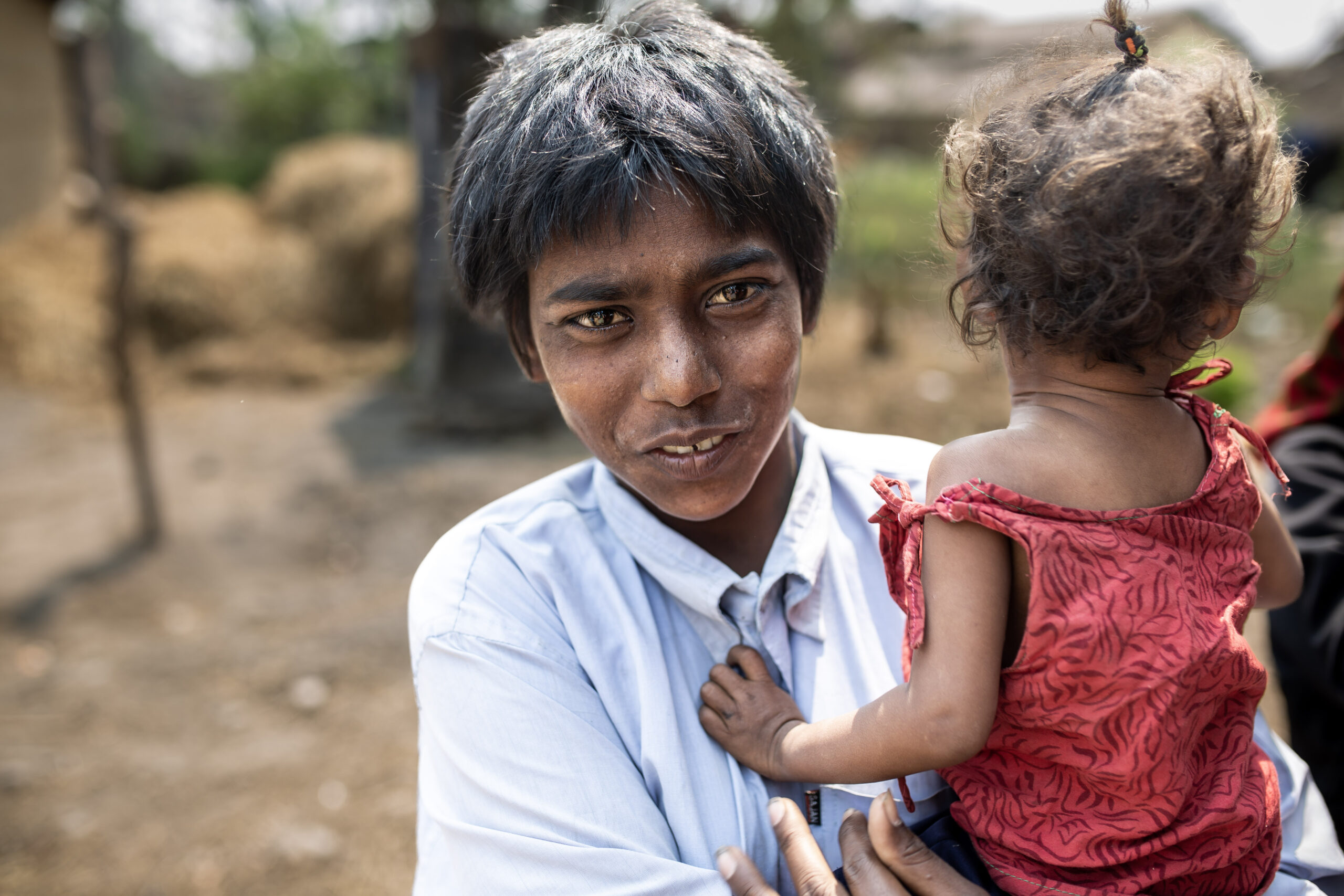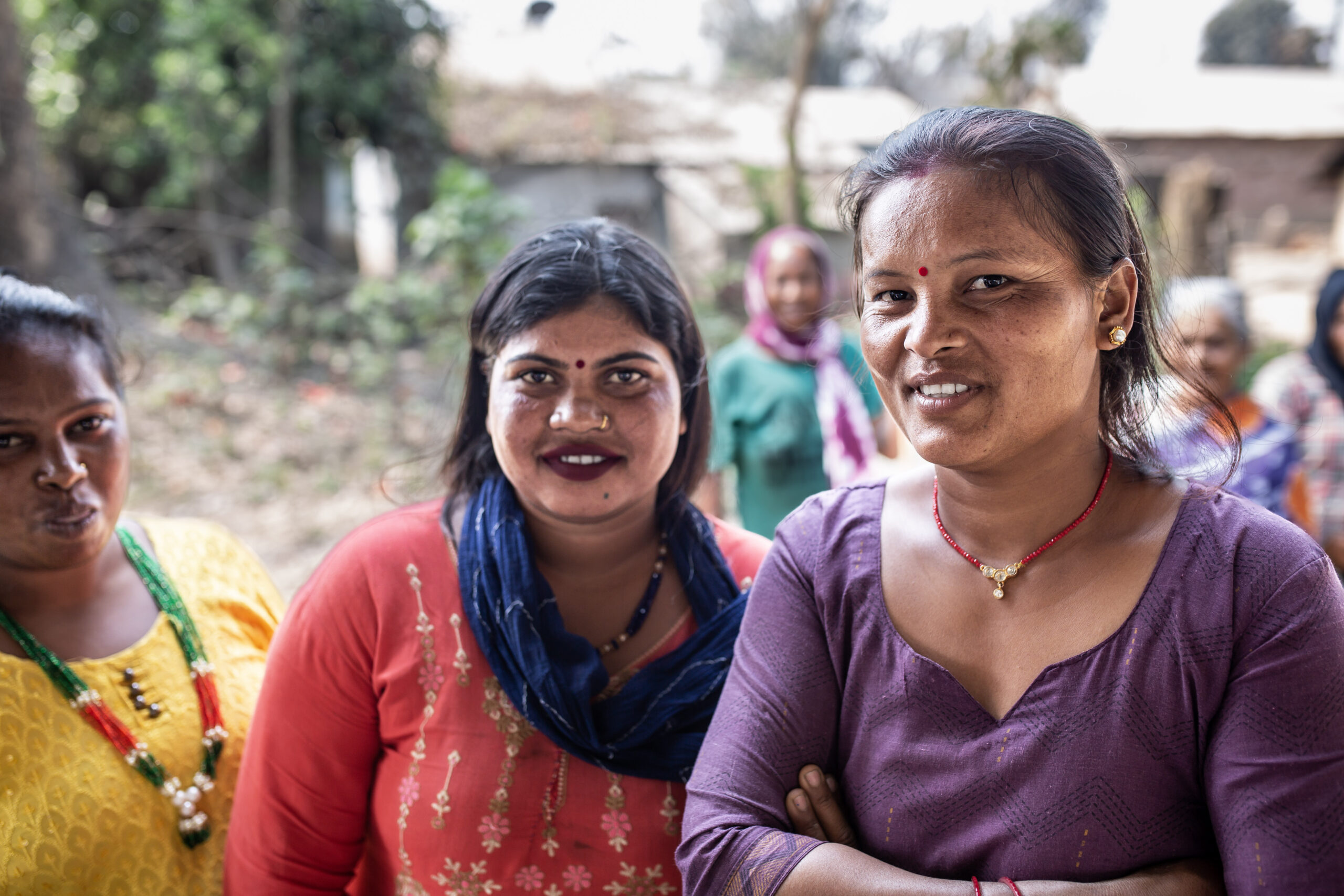As we continue our journey ministering alongside our local partner in Nepal, the narrative of transformation continues to unfold in a remote village near the Indian border, where the Musahar people, considered the “untouchables” of the caste system, reside. This marginalized community faces dire circumstances and an extreme lack of resources, struggling to secure necessities like food, water, clothing, and shelter.
The Musahar people live near the jungle to harness its natural resources for survival. However, the Nepalese jungle is a dangerous place where people regularly fall victim to animal attacks and floods. This village, home to 600-800 people, consists of about 110 families, and their living conditions are far from ideal. Most of their homes are crudely put-together structures, vulnerable to damage from natural disasters.
Shining the light of Jesus
A local church in a neighboring village has been extending its hand to the Musahar community for over a decade, leading to 15-20 individuals finding solace in the Lord within that timeframe. However, the Musahar people are often viewed as violent and unclean due to their struggles with addiction, making it a challenging environment to serve. Even the local government perceives the village as a nuisance.
In the face of these challenges, together with your impact and our local partnership, we have begun a fruitful ministry in this village. It began with food distribution in 2023 when we provided food to 100 families. Since then, we have been witness to the fruit of the gospel portrayed through the holistic ministry of caring for both body and soul.
In addition to providing them with basic supplies for survival, we have also started family counseling, women empowerment groups, and gospel-centered children’s activities on a weekly basis. Three home churches have since been established and six people have found hope in the gospel. Praise God! This is your impact at work through the power of the gospel!
A story of renewed hope
Here’s the story of Sushma, a teenage girl in the Musahar village:
She lost both of her parents and lives with her sisters, who all suffer from developmental issues, leaving them unable to speak. In a community where women and girls are particularly vulnerable to exploitation and abuse, for those with disabilities the risks are even worse.
Sushma’s life takes a distressing turn as she becomes the target of mistreatment, leaving her pregnant without the means to provide for her newborn daughter.
Amidst this dark experience, she found hope. Your love took her out of despair, offering solace and assistance where none seemed available. Through your intervention, she found a renewed sense of hope through the love of Christ and the outreach of our ministry. She no longer feels alone and unseen. She was lifted out of poverty and was met with love and support through the resources that were started with your impact.
You are making an impact
In a world where the marginalized often suffer in silence, your involvement becomes a powerful testament to the impact of collective action and compassion. It’s through such acts of kindness that we can begin to dismantle the barriers of inequality and injustice for a more equitable and compassionate society.
This is the power of the message of Jesus’ life, death, and resurrection transforming communities from the inside out. This is the hope we’ve been freely given through his sacrificial love, and the incredible fruit we get to witness when we share it with the world!
Through your support, we work exclusively through the local church to build relationships, provide basic needs, and foster education and leadership. We remain committed to the belief that the love of God can shine even in the darkest places. Together, we can make a difference and uplift the lives of those who have long been cast aside.
Thank you for joining us in transforming communities like this one to look more like the Kingdom of God!
Search the Blog
Free Resource

3 Ways to Honor God on Your Next Mission Trip
We're sharing three things you should consider before you organize or participate in an international mission trip, seek to do work in the multicultural neighborhood in your own city, or embark on any cross-cultural partnership.




